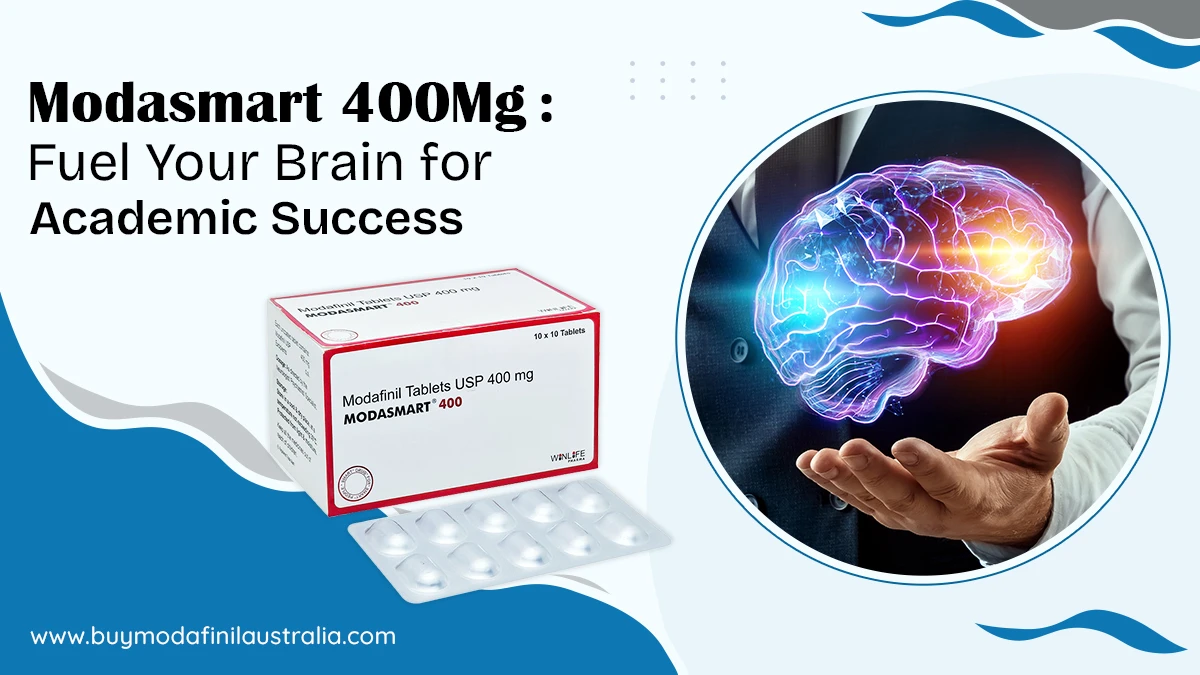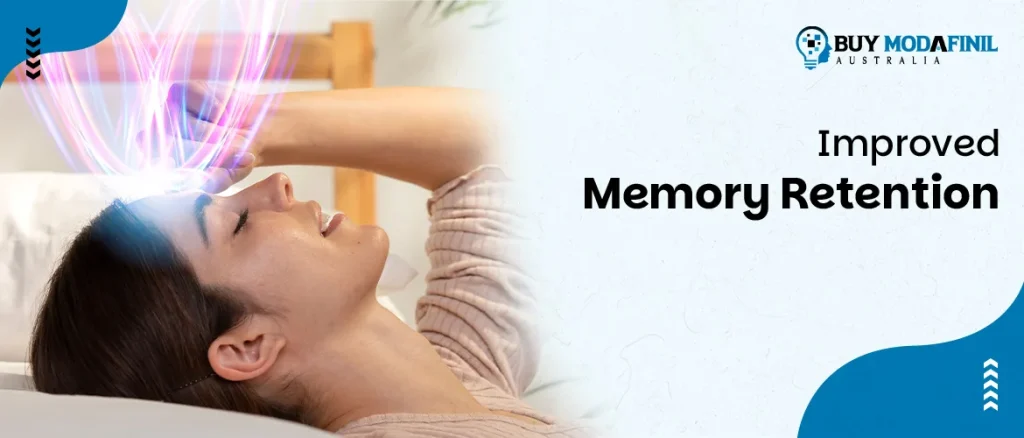
Modasmart 400mg: Enhanced focus and concentration

When you have great focus and concentration, you can be more efficient with your work and accomplish more. In today’s fast-paced world that encourages multitasking, Modasmart 400mg plays a crucial role in helping you develop the ability to concentrate deeply and stay on task. This nootropic supplement supports your brain’s natural capacity to maintain alertness, productivity, and mental clarity. By incorporating Modasmart 400mg into your daily routine, you can begin to master your mind’s ability to focus on tasks that lead to greater success and personal fulfilment.
Focus is the skill of directing your mental energy towards a single goal, while concentration is maintaining that focus for an extended period. Modasmart 400mg works synergistically with healthy lifestyle changes and mindfulness practices to enhance both focus and concentration. Eliminating distractions, getting adequate sleep, eating a balanced diet, and engaging in regular physical activity are all ways to boost mental performance.
Additionally, practising mindfulness meditation alongside Modasmart 400mg can further strengthen your ability to remain calm and focused under pressure. Together, these strategies can help you achieve improved cognitive function, higher productivity, and a sharper, more resilient mind.
Boost Memory and Cognitive Health with Modasmart 400mg

Memory forms the foundation of who we are—it shapes our identity, experiences, and ability to learn. However, as we age, it’s natural for memory to decline over time. The good news is that there are effective ways to maintain and improve cognitive function. Modasmart 400mg, combined with scientifically backed strategies such as mnemonics, spaced repetition, and active recall, can help enhance memory retention and learning capacity. Adjusting study habits, adopting healthier lifestyle choices, and practising stress management are key steps to keeping your brain sharp and your memories vivid.
Getting enough quality sleep and engaging in regular physical exercise are essential not only for overall health but also for memory improvement. Studies show that cardiovascular activity and adequate sleep contribute to the growth of the hippocampus — the part of the brain responsible for verbal memory and learning. Incorporating Modasmart 400mg into your daily routine can further support this process by enhancing focus, alertness, and cognitive energy.
Additionally, making positive lifestyle changes such as maintaining a balanced diet, staying hydrated, and limiting alcohol consumption can have a profound impact on brain health. With consistent effort and the right support from Modasmart 400mg, you can strengthen your memory, improve mental performance, and sustain cognitive vitality at any age.
One more helpful technique to enhance aspects of memory is to try to test yourself through rehearsal, using whatever resources are available or simply by reading it out loud. Research finds rehearsal to assist with retrieval since you are forcing your brain to redeploy your access to the information through memory, which is different from simply studying it again. This process involves the upregulation of AMPA types of glutamate receptors (AMPARs) that bind glutamate while thinking about retrieval, which would enhance connectivity in neural perspectives and facilitate access to the long-term memory area.
There are a few substances that promote the effect of glutamate on AMPARs for a longer duration, like Ampakines, and there are also D-Cycloserine and Donepezil, among other good memory enhancers. Also, some smart drugs like Modasmart 400mg are being studied to determine if they affect cognition, specifically if they affect focusing, alertness, and memory encoding.
Reduced mental fatigue

Chronic mental fatigue is different than the occasional feeling of tiredness that makes it difficult to focus, concentrate, and feel motivated to do anything. It is often linked with some type of psychological disorders like anxiety and depression, but might also stem from biological factors like sleep quality, stress, or, to a lesser extent, poor health.
The most telling symptom of mental fatigue is that you feel tired, sluggish, or dull even after you feel like you’ve had enough sleep. While there may be other symptoms, like brain fog, irritability, or difficulty thinking clearly, some indicators of physical fatigue include headaches, muscle tension, and simple chronic pain. When you experience the symptoms of chronic fatigue, it is important to determine what represents the source of your chronic fatigue so you can take steps to minimize it.
The best way to get over mental fatigue is physical exercise. Exercise helps improve blood flow to the brain, and it releases feel-good chemicals like serotonin and dopamine. You can exercise by going for a 20-minute walk outside, or simply take longer work breaks throughout the day and do some light exercises in the middle of the day.
Better alertness during long study sessions

If you are starting your study session already feeling overwhelmed, it is not shocking that it may feel like a mountain to climb! But there is an easy, simple, and effective way to create a more flowing study session. These really easy strategies, when implemented, can not only lead to improved attention but can make you feel like you can tackle long study sessions!
Some examples of strategies can be to create a consistent sleep cycle before your study session, find an area to study without potential distractions, and use mindfulness exercises that develop selectiveness. Also, some learners use Cognitive Enhancers, natural supplements, brain training, and productivity techniques to generate mental clarity to maintain attention across a lengthy study session.
Begin the Study Session with a Positive Mood
If the thought of studying makes you want to jump into bed, you need to change your mindset and mood before beginning. Research shows that being in a positive mood improves concentration, so it is important to psych yourself out before you sit down and work.
Choose an Appropriate Study Environment
You will be less distracted by emails, social media notifications, or random thoughts if nothing is cluttering your environment. If possible, locate a comfortable, quiet place that is as distraction-free as you can get, and consider using calming music or a timer to help you focus.
Rest Regularly
When stepping away from your desk, it’s beneficial to engage in light, brain-friendly activities—such as stretching, walking, or practising mindfulness—to keep your mind active while still resting from intense concentration. Pairing these habits with Modasmart 400mg can further enhance mental clarity and focus, helping you return to your studies feeling recharged, motivated, and ready to perform at your best.
Making sure to eat a healthy diet is important for mental performance and concentration as well, so be sure to feed your brain with nutrient-dense foods – think blueberries, dark leafy greens, avocados, fish, nuts, and seeds. And drink plenty of water to keep yourself hydrated and at a high level of alertness.


Comments (0)
Leave A Comment